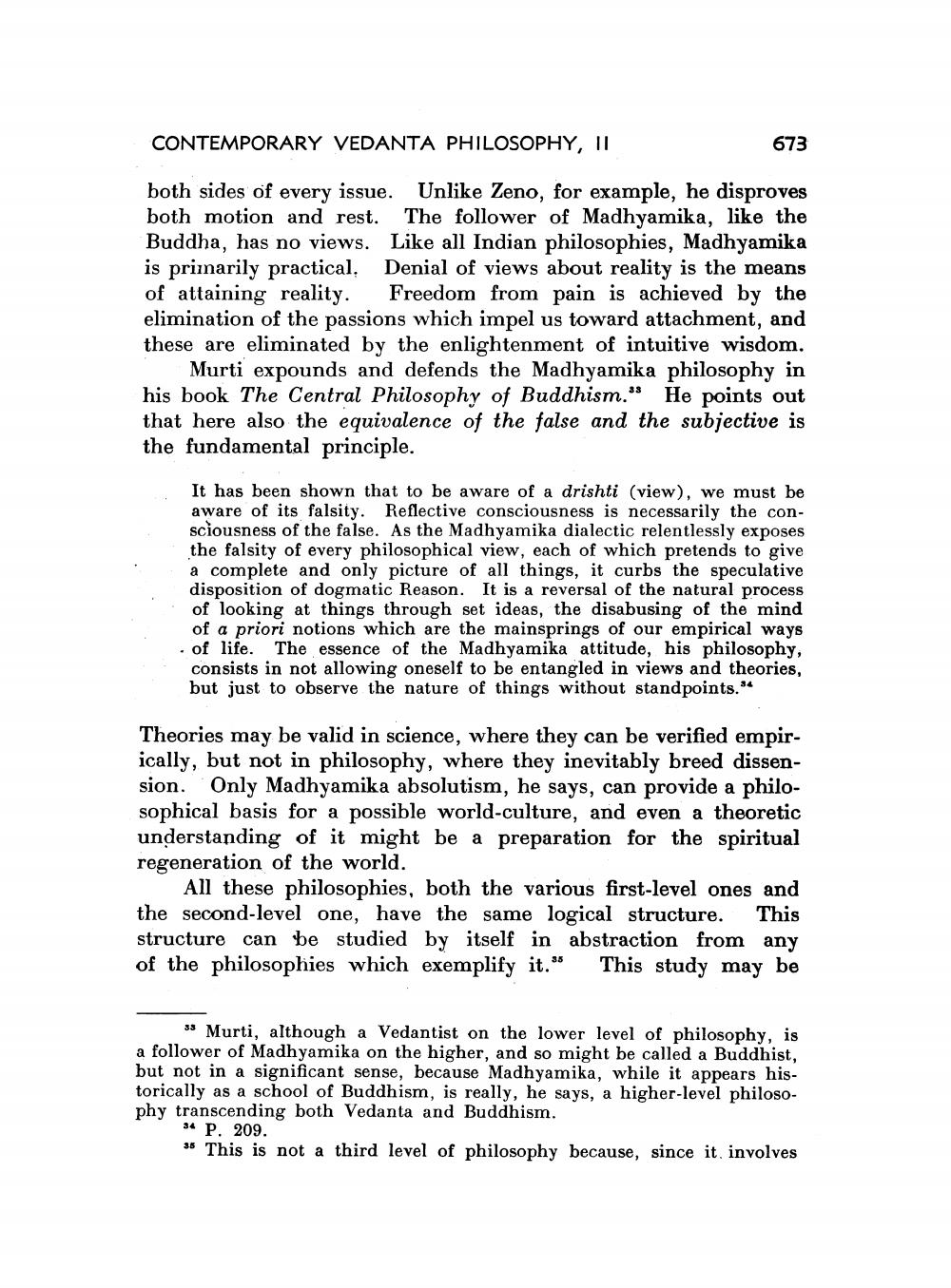________________
CONTEMPORARY VEDANTA PHILOSOPHY, IL
673
both sides of every issue. Unlike Zeno, for example, he disproves both motion and rest. The follower of Madhyamika, like the Buddha, has no views. Like all Indian philosophies, Madhyamika is primarily practical, Denial of views about reality is the means of attaining reality. Freedom from pain is achieved by the elimination of the passions which impel us toward attachment, and these are eliminated by the enlightenment of intuitive wisdom.
Murti expounds and defends the Madhyamika philosophy in his book The Central Philosophy of Buddhism." He points out that here also the equivalence of the false and the subjective is the fundamental principle.
It has been shown that to be aware of a drishti (view), we must be aware of its falsity. Reflective consciousness is necessarily the consciousness of the false. As the Madhyamika dialectic relentlessly exposes the falsity of every philosophical view, each of which pretends to give a complete and only picture of all things, it curbs the speculative disposition of dogmatic Reason. It is a reversal of the natural process of looking at things through set ideas, the disabusing of the mind of a priori notions which are the mainsprings of our empirical ways of life. The essence of the Madhyamika attitude, his philosophy, consists in not allowing oneself to be entangled in views and theories, but just to observe the nature of things without standpoints."
Theories may be valid in science, where they can be verified empirically, but not in philosophy, where they inevitably breed dissension. Only Madhyamika absolutism, he says, can provide a philosophical basis for a possible world-culture, and even a theoretic understanding of it might be a preparation for the spiritual regeneration of the world.
All these philosophies, both the various first-level ones and the second-level one, have the same logical structure. This structure can be studied by itself in abstraction from any of the philosophies which exemplify it. This study may be
38 Murti, although a Vedantist on the lower level of philosophy, is a follower of Madhyamika on the higher, and so might be called a Buddhist, but not in a significant sense, because Madhyamika, while it appears historically as a school of Buddhism, is really, he says, a higher-level philosophy transcending both Vedanta and Buddhism.
* P. 209. 35 This is not a third level of philosophy because, since it involves




